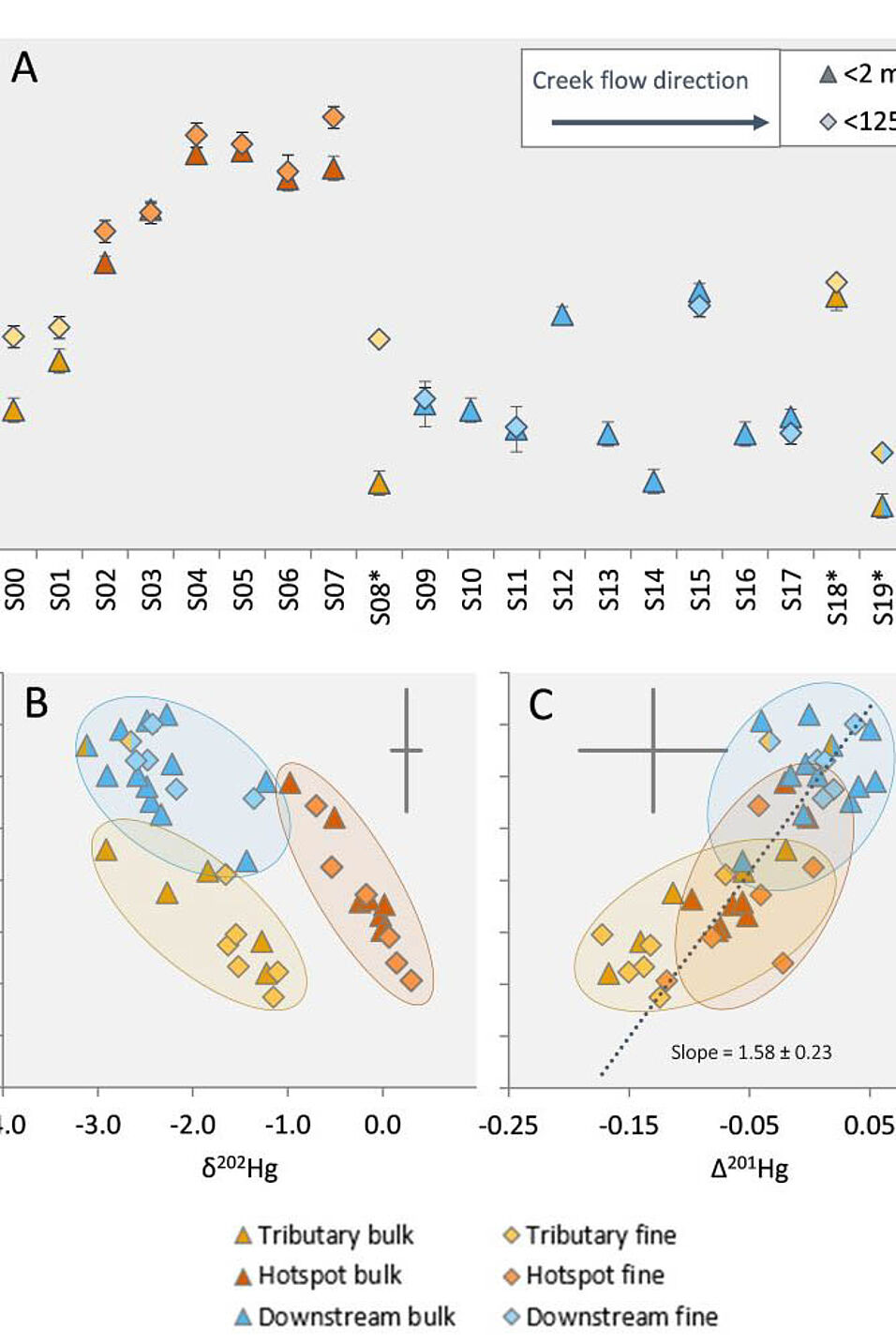In this study, Prof. Stephan Krämer together with PhD student Lorenz Schwab, former University assistant Dr. Jan Wiederhold and MSc student Florian Rothe collected stream sediments downstream of a former kyanization facility in the Black Forest, SW Germany, where highly soluble Hg(II)-chloride (HgCl2) was used as an anti-fouling agent to treat timber. We investigated in-stream Hg transformation processes with analyses of Hg binding forms and Hg stable isotopes.
The large extent of Hg isotope fractionation observed in stream sediments resulted from a combination of kinetic isotope effects during sorption, redistribution of Hg within the sediment and the preferential transport of Hg associated with the sediment fine fraction.

